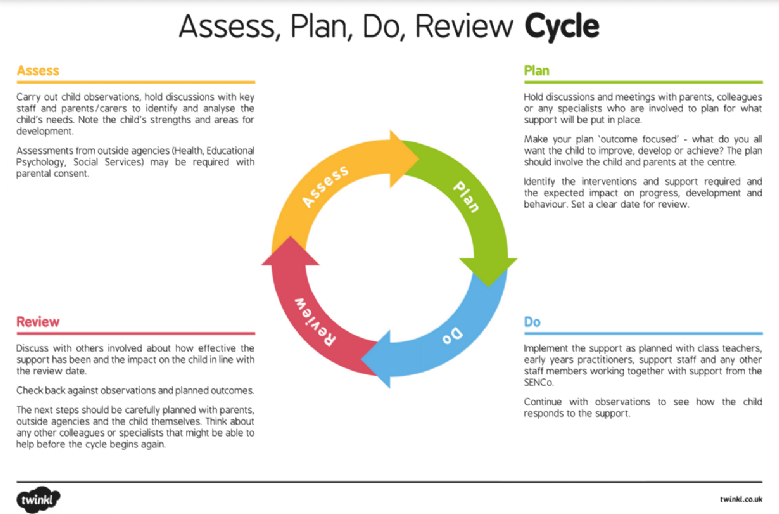Special Educational Needs and Disability
At All Saints Inter-Church Academy, we are deeply committed to living out our SHINE values — Service, Hope, Integrity, Nurture, and Excellence — in everything we do. These values shape our inclusive approach to education, ensuring that every child is recognised, supported, and celebrated for their unique achievements and efforts.
We believe that every pupil deserves the opportunity to thrive. That’s why we place children at the heart of all our decisions, creating an environment where they can become the very best version of themselves. Inclusion is not just a principle — it’s a practice embedded in our daily life, curriculum, and school culture.
Children may, at times, be identified as having a special educational need or disability. At All Saints Inter-Church Academy, we are committed to ensuring that these children are provided with equal opportunities to succeed. We strive to empower every learner to reach their full potential through tailored support, inclusive practices, and a nurturing environment.
To learn more about our SEND provision, please explore our [SEND Information Report], [SEND and Disability Policy], and the [Local Offer] from the Local Authority. For independent advice and support, [SENDIASS] is a valuable resource for families.
If you have any questions about your child’s provision, please speak with your child’s class teacher in the first instance. For SEND-specific matters, you are welcome to contact Mrs Sarah Johnson (SENDCo) at senco@allsaints.cambs.sch.uk. We’re here to listen, support, and work together to ensure the best outcomes for your child.
How do we provide inclusivity and support SEND at All saints Inyer-Church Academy?
To learn more about how we support inclusion and SEND at All Saints, please use the links at the bottom of this page to view our current policies and our annual SEND Information Report. These documents offer a clear picture of our commitment to every child’s needs and outline the ways we work together to ensure all pupils feel valued, supported, and able to thrive.
Information and Resources for Parents and Carers
At All Saints Interchurch Academy, we understand that navigating the world of Special Educational Needs and Disabilities can be daunting. What is an APDR? Why has my child got one? Why are school staff talking about an EHCP, and what does this mean for my child? We hope that the videos and links below will help to answer any questions you may have. If not, please do contact either your child's class teacher or Mrs Johnson so that we can help.
A helpful video guide to the 'Graduated Response' to SEND

A useful page explaining SEND support in schools
A great video giving key information about Education, Health and Care Plans (EHCPs)
Our SEND Governor
Our SEND Governor is Allan Whyte. Allan worked for more than forty years as a Clinical Psychologist with a particular focus on Child Psychology. He is very supportive of the development of SEND provision at All Saints and has spent considerable time compiling resources to support our children, parents and carers, based on his own extensive experience.
Please click on the links below to find out more!
Understanding ADHD - Information for Parents
SEND Support and Advice Beyond School
Support Beyond School for Children with SEND
There is a wide range of excellent support available outside of school for children with Special Educational Needs and Disabilities (SEND) and their families. These services offer guidance, resources, and opportunities to connect with others who understand the journey. Below is a brief overview of some key services:
Cambridgeshire Local Offer
The Local Offer is a comprehensive directory of services and support available for children and young people aged 0–25 with SEND. It includes information on education, health, social care, early years settings, training, employment, and voluntary sector services. It helps families understand what support is available, how to access it, and what to expect.🔗 Visit the Cambridgeshire Local Offer
SENDIASS Cambridgeshire
The SEND Information Advice and Support Service (SENDIASS) provides free, impartial, and confidential advice to parents, carers, and young people aged 0–25. They help families understand their rights, navigate the SEND process, work with schools and professionals, and resolve disagreements. 🔗 Visit SENDIASS Cambridgeshire
PinPoint Cambridgeshire
PinPoint is a parent-led organisation offering support, information, and opportunities for parent carers of children with SEND. No formal diagnosis is needed to access their services. They run support groups, events, and forums where parents can share experiences and help shape local SEND services.🔗 Visit PinPoint Cambridgeshire
Cambridgeshire Early Help (SEND Service 0–25)
This local authority service provides targeted support through educational psychologists, specialist teachers, and practitioners. They work directly with children, families, and schools to support learning, emotional development, and transitions. Access is typically through your child’s school or SENDCo 🔗 Learn about the SEND Service 0–25
IPSEA (Independent Provider of Special Education Advice)
IPSEA is a national charity offering free, legally-based advice to families navigating the SEND system. They provide helplines, template letters, legal guides, and training to help parents secure the education their child is entitled to by law. 🔗 Visit IPSEA
Understanding the Right to Choose Pathway
If your child is waiting for an Autism or ADHD assessment, you may be eligible to use the Right to Choose pathway. This NHS legal right allows families to choose an approved provider for assessment and diagnosis, potentially reducing long waiting times.
How it works:
- Speak to your GP and request a referral under the Right to Choose.
- Choose a provider with an NHS contract (including online options).
- Your GP sends the referral directly—no special funding approval is needed.
- You cannot self-refer; the GP must initiate the process.
Important considerations:
- Some providers offer diagnosis only, not ongoing treatment.
- Medication may require a shared care agreement with your GP.
- Future support may need new referrals if the provider isn’t linked to local services
